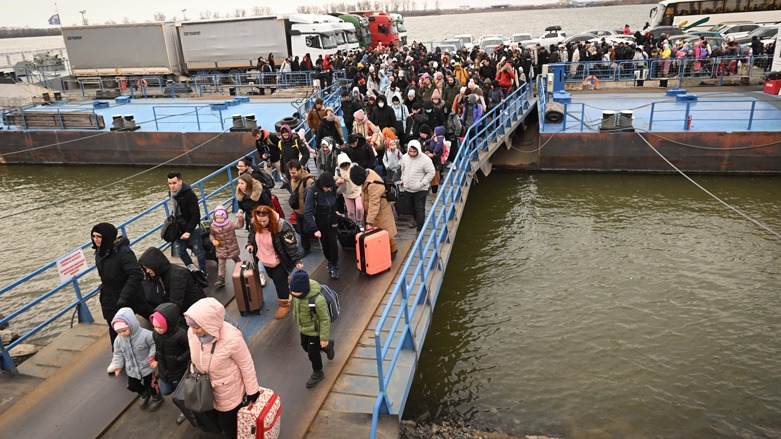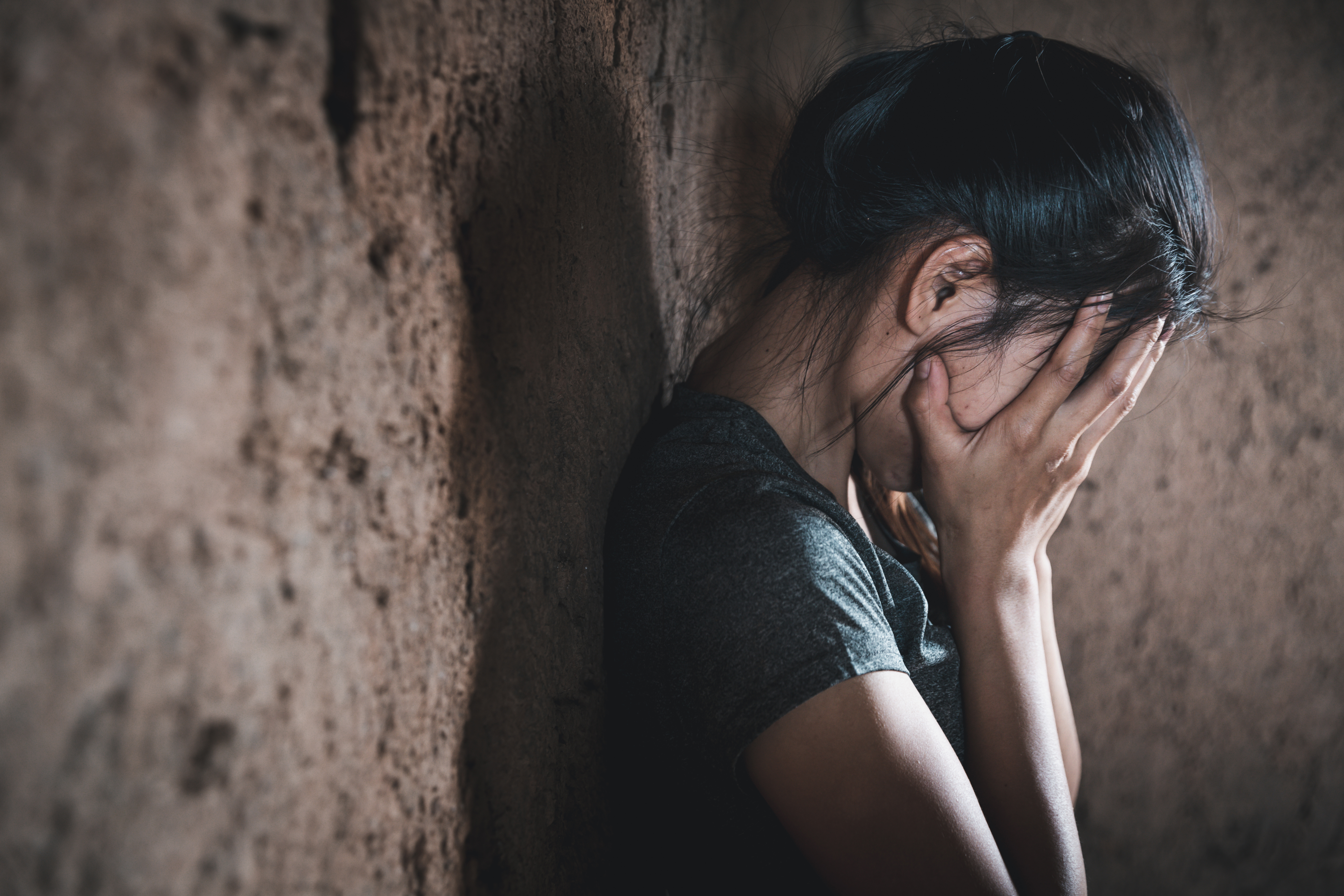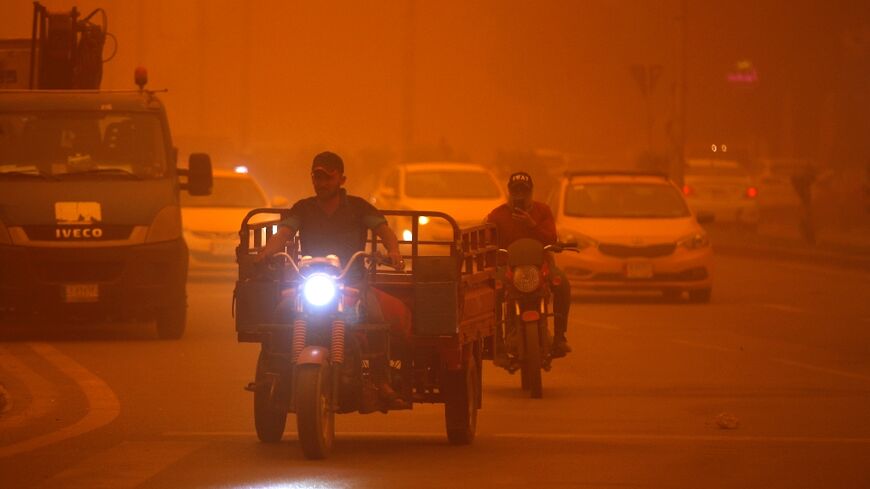According to the Iraqi Observatory for Human Rights, Iraqis living in Ukraine are facing dire conditions and a threat to their lives as a result of Russia's invasion of the country, which began last Thursday (February 24, 2022), with "no assistance" from Iraqi authorities.
5537 Iraqis live in various cities throughout Ukraine according to statistics of the Iraqi Ministry of Foreign Affairs, which said that its minister contacted the Iraqi charge d'affaires there on the first day of the invasion, emphasizing "the importance of taking all possible measures to ensure the safety and security of the community and the diplomatic mission".
On February 22, the Iraqi Ministry of Foreign Affairs urged Iraqi citizens to leave Ukraine and avoid the country's eastern regions, which are more vulnerable. It also assigned a phone number to assist them in escaping.
Many of these people spoke to the Iraqi Observatory for Human Rights, and they all complained about their poor living conditions and expressed their fears about what might happen to them and their families as the danger threatens their homes and apartments because of the bombing, intense clashes, scarcity of food, fuel, and power outages.
"We thought that negotiations would resolve the crisis between the two countries, but we were surprised by the Russian invasion, and now I'm stuck in very difficult circumstances with my wife and two children." According to what Murtada al-Amiri said to the Iraqi Observatory for Human Rights.
"Mortada" is a young man studying dentistry in Ukraine, where he is one of 450 Iraqi students. He called the observatory from his apartment in Kyiv, Ukraine's capital, where he has lived for a year.
Because of the confusion, this young man's situation worsened when he lost half of his money deposited in a Ukrainian bank, so he made a mistake in withdrawing money from the ATM to go as donations to the army.
"What can I say about the Iraqi embassy in this place?'' It did nothing for us and didn't help an Iraqi except that it asked us to leave at the start of the crisis (before the Russian invasion of Ukraine), and at the time, airfare prices had skyrocketed, as everyone knew that, and all the embassy did was a duty drop. It is imposed, and it is no longer answering our calls "Mortada Al-Amiri says.
The Iraqi Ministry of Foreign Affairs said in a statement on (February 25, 2022) that it coordinates, contacts, and opens hotlines to help Iraqis in Ukraine and provide services to those who can leave this country for Russia, Poland, Hungary, and Romania, and that it had received 76 requests from Iraqi students who wanted to leave the country.
"Mortada Al-Amiri" presented to the Iraqi Observatory for Human Rights messages he exchanged with a transport broker showing that transporting one person to a safer border city coasts 600 dollars, which means he needs 1,400 dollars to go out with his family to a safe place, but he does not have this amount, so he stayed in his place under threat. Also, "Mohammed," an Iraqi doctor who arrived at the Polish border, mocked the Iraqi Foreign Ministry's statements. He stated in an interview with the Iraqi Observatory for Human Rights, "These statements are unrealistic".
The Iraqi embassy in Kyiv performs poorly in normal times; how will it fare now that the country is at war? I didn't bother contacting it and relied on myself to reach the borders of Poland, while the Iraqis who couldn't flee remained trapped, particularly in eastern Ukrainian cities like Kharkov, Baltava, and Sumy.
Everyone who spoke to the observatory stated that contacting the Iraqi embassy in Ukraine is "useless," so they are attempting to resolve their situation on their own, and some of them are looking for someone to give them money in US dollars to pay in exchange for moving him to another location, provided that his family pays the creditor's family the same amount in Iraq.
The observer from the Iraqi Observatory for Human Rights who prepared this statement then wrote to the Iraqi embassy in Kyiv on the hotline designated to receive requests for departure, pretending as a refugee residing in Sumy and requesting assistance to leave, but no one has responded to his messages yet.
Nihad Jihad Al-Khikani, the head of the Iraqi Students' Representation Abroad, described the situation of students in Ukraine as "tragic." He said in press statements to local websites, which the Iraqi Observatory for Human Rights reviewed, that people were "crying and complaining about a lack of food, gasoline, and power cuts for long hours under bombardment".
The observatory also saw distress messages written by Iraqi students in Ukraine pleading with their citizens in Iraq to forward them to the authorities, claiming that they are now living "in terror, and no one hears our voice or asks about us, and all we want is to return safely to our country".
Some Iraqis in Ukraine displayed messages from Ukrainian authorities on their phones, warning them of the dangers of the situation. Some of these messages say, "You must hide" in the metro or the bomb shelter," another says "Today will be a tough battle in Kyiv".
"The Iraqi Ministry of Foreign Affairs says that it has instructed the provision of services to those who can leave Ukraine, but the essential problem is how to leave,'' yet when we call their hot line, we do not receive an answer... Really hot," some people asked, ironically and bitterly.
They also demanded the Ministry of Foreign Affairs and its embassy in Kyiv to communicate with the Iraqis there.This situation prompted "Murtaza al-Amiri" and three other Iraqi families to consider leaving Kyiv and Ukraine, but they lack the funds to make this perilous journey.
Iraqi students studying at universities in southern Russia, particularly Volgagrad and nearby Rostov, Ukraine, face difficulties returning to Iraq. According to a message received from them to the Iraqi Observatory for Human Rights, the laws of the Iraqi Ministry of Higher Education require that they reside in the city where their universities are located, and they cannot return now without the approval of the Iraqi government.
These students claim that their problems have been exacerbated by the passage of time and the longer it has taken Baghdad (The Ministry of Higher Education and Scientific Research or the Ministry of Foreign Affairs) to approve their return, particularly given the disruption of flights and the ''collapse" of the ruble currency.
The Iraqi Observatory for Human Rights urges Iraqi authorities, the Ministry of Foreign Affairs, and the Iraqi embassy in Ukraine to be more serious and aware of their legal responsibilities to the citizens trapped there, and to do everything possible to truly ensure their security and find a safe exit for them, as some countries did despite the difficult circumstances, rather than being satisfied with issuing statements that do not follow them.
The observatory also urges the Ministries of Foreign Affairs, Higher Education, and Scientific Research to allow stranded students in southern Russia to return home as soon as possible.




